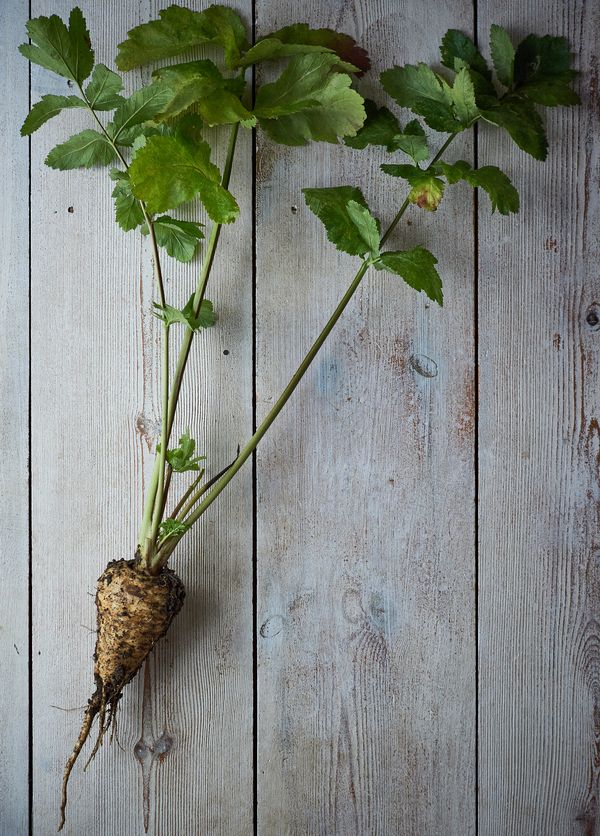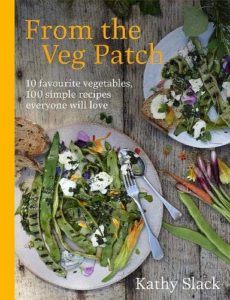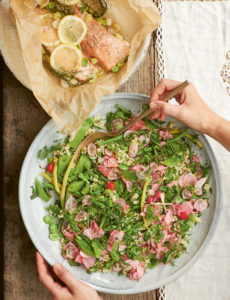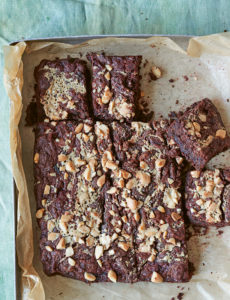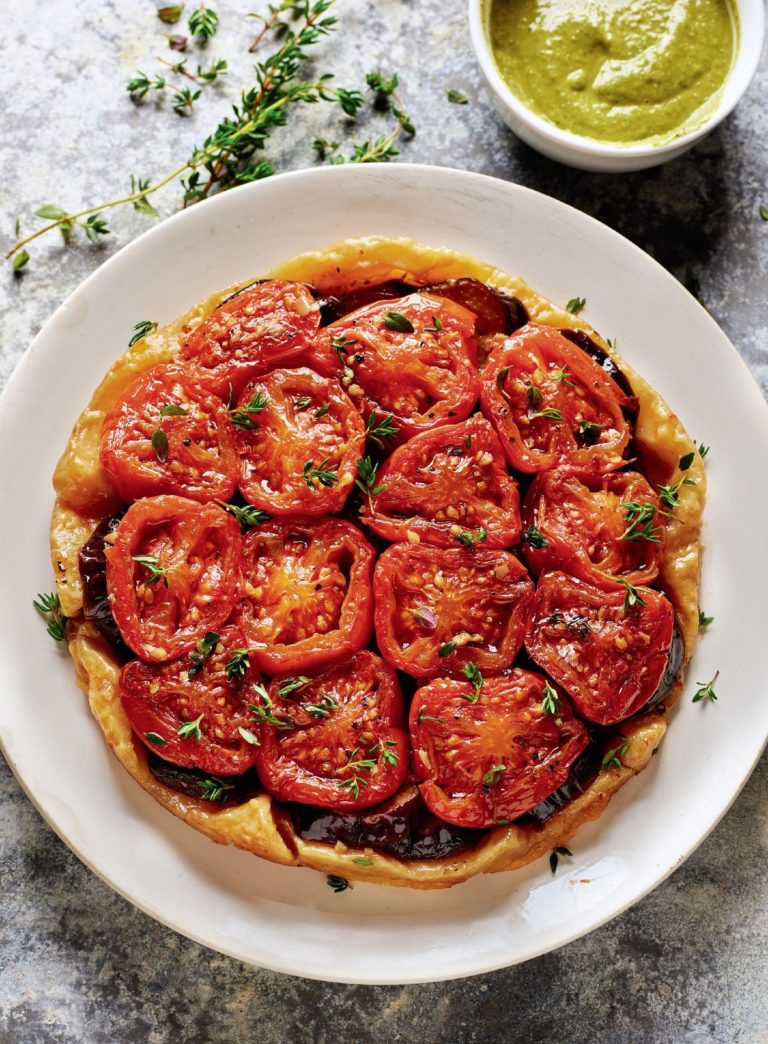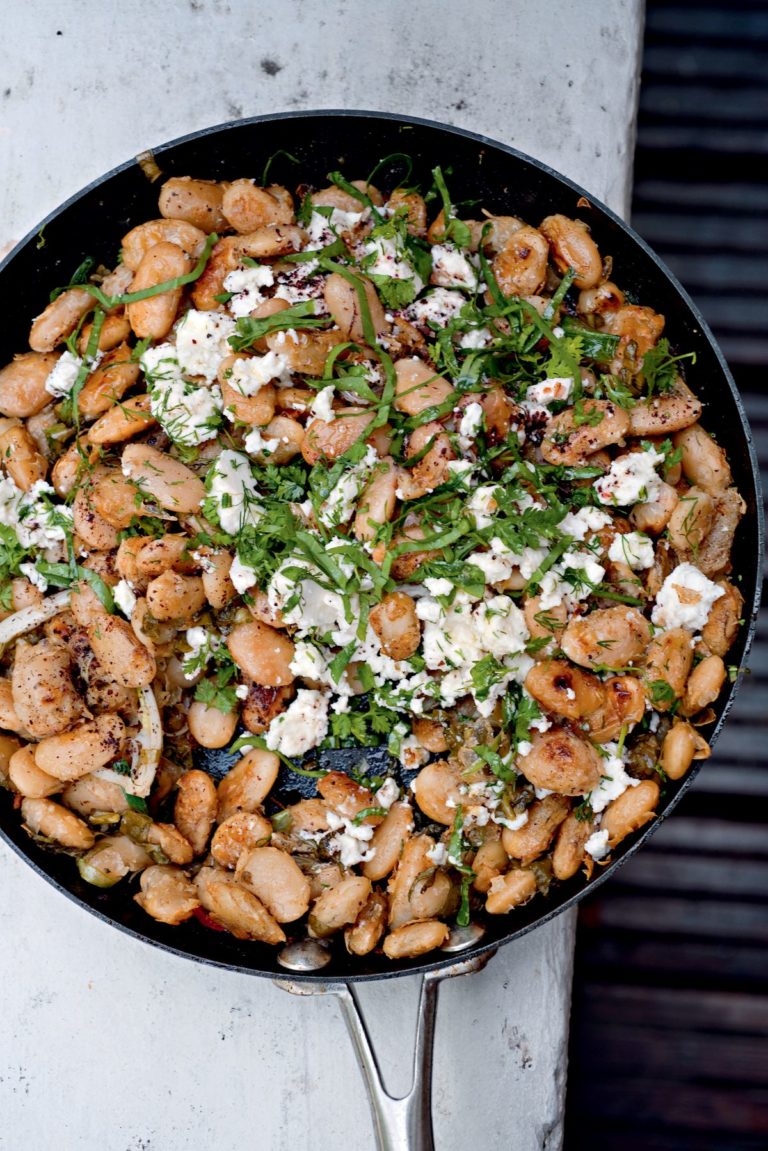You can spot a vegetable grower easily: they will tell you, usually within minutes of meeting them. They cannot contain themselves. It’s all too exciting. Having regaled you with tales of how their harvests are doing they will gleefully launch into a commentary of what they cooked last night with their homegrown carrots, or whatever, which tasted like no other carrot dish you could possibly comprehend and was so darn carrot-y as to blow their mind.
I confess, I am this person. I have been growing my own vegetables for 10 years after I moved out of London to escape the rat race. Eventually I would quit my office job to grow and cook full time, so strong was the addiction, and now I write about food inspired by nature, the Cotswold landscape where I live, and my seasonal harvests over on my website, Instagram and in my first cookbook, From the Veg Patch.
And so it is with particular joy that I start this new column. Each month, I will share my tips on what fruit and vegetables to plant and to pick, and suggest recipes from my own archives or The Happy Foodie’s collection to celebrate the most delicious harvests of the month. In each column, I will open the garden gate and show you what I am sowing, tending and cooking that month, so we can share the abundance of the harvests together.
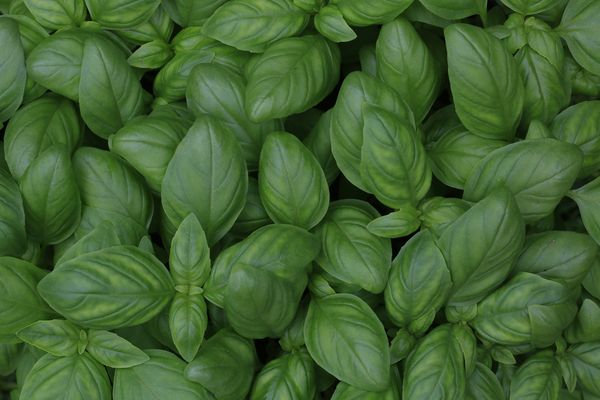
What to Plant in January
Sowing anything in January is always a bit of risk. The weather is dubious and the wildlife hungry, so nighttime raids on your sweet and inviting crops are likely. However, growers everywhere will have fingers itching to sow something after the winter break.
If you have a sunny, sheltered, indoor windowsill you can alleviate the sowing compulsion by planting basil now. A few seeds scattered 2-3cm apart in a 15cm plant pot of compost and sat in a tray of water to soak the soil (watering from above might rot the seeds), will germinate in a warm kitchen within a fortnight and should provide a few leaves for garnishing a pizza by April.
January is also the time to ‘chit’ potatoes. This is the process of arranging the seed potatoes (which are just potatoes that, when planted, will produce shoots to create more potatoes) in egg-boxes on a windowsill so they sprout. If you’ve kept cooking potatoes for too long you might have noticed these shoots growing from nodules, called ‘eyes’, in the skin. This process gives the spuds a head start when you plant them from mid-March. I grow new potatoes, rather than maincrop, usually International Kidney (which is a Jersey Royal but just not from Jersey) and Swift (which is, as the name suggests, a fast grower).
What to Harvest in January
You need to be quite an organised grower if you are to have harvests in January. With some skill and a little luck, you can still have brassicas like kale, cabbages and sprouts to pick. Leeks will stand happily in this weather too. Those with cold frames, lucky things, can enjoy cut and come again salads in the form of mustard leaves like Mizuna and hardy greens like Pak Choi, both of which are sturdy enough to withstand the cold but delicate enough to eat raw.
My parsnip harvest still going strong as well, which is unusual for me, though not for most. Generally, I am delighted if I have just enough to roast for Christmas dinner. But this year, the first in my new raised vegetable beds, the crop was sown early (March) and directly into perfect compost, with no stones to obstruct growth, and sheltered from the wind – by any standards a cushy location in which to grow. Clearly, the parsnips liked this, because the harvest has been abundant.
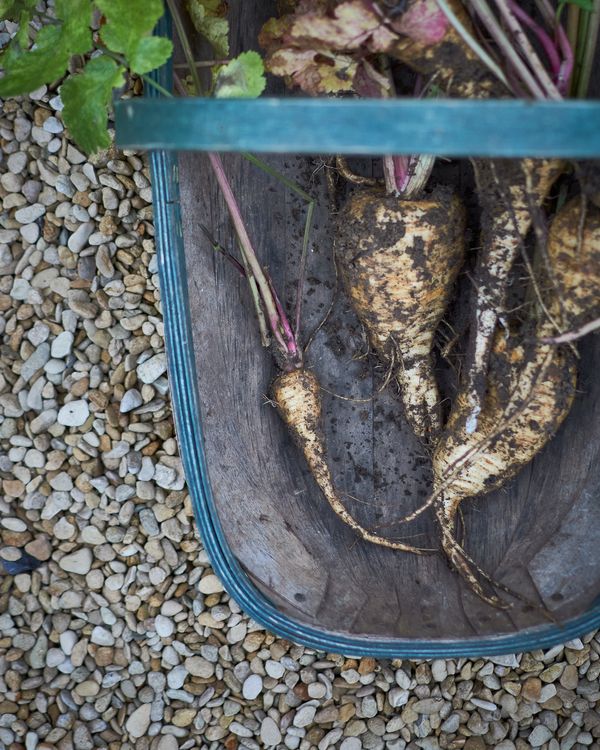
What to Cook with the January Harvest
Parsnips are a root with surprisingly broad potential. After you have roasted them with a little maple syrup for Christmas, there is curry, salad, gnocchi, mash, gratin, hash, cake, soup and even ice-cream to try.
These three recipes are some of my favourite ways to put parsnips centre stage.
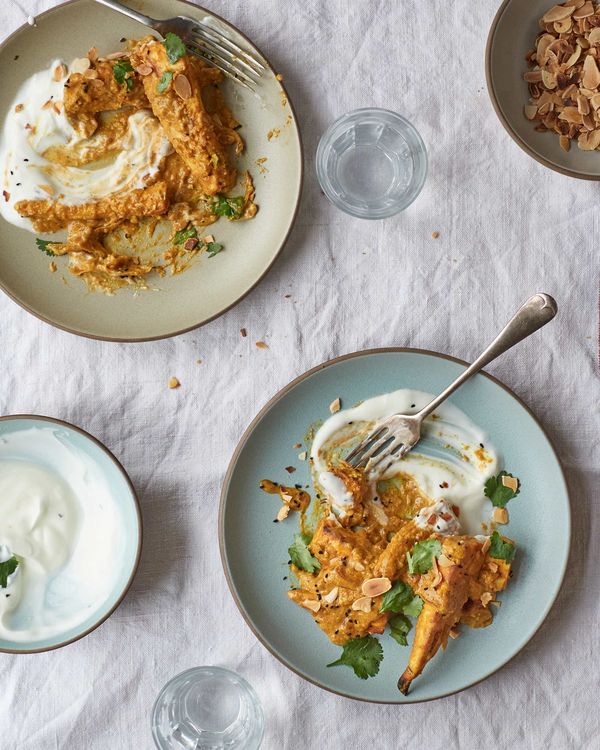
A rich, mild and creamy vegetarian curry with roast parsnips, almonds and cockle-warming spices. Even better reheated after a night in the fridge so the flavours can mingle.
Find the recipe on my website here.
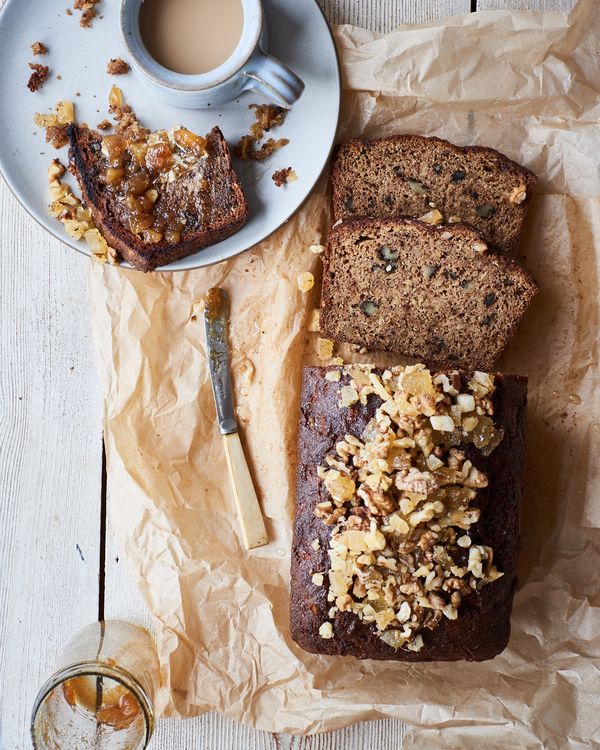
Parsnip, Ginger and Walnut Loaf
This spiced parsnip loaf is made with warming ginger, nutmeg and mixed spice to complement the sweet grated roots that are added to the cake batter as you would in a carrot cake. The topping, which is critical, brings crunch and kick to balance the soft sweetness of the cake. It is sweet but not sickly – if anything, the wholemeal flour and the grated veg made it feel quite wholesome – so ideal for elevenses. I also highly recommend toasting the slices under the grill then buttering liberally and drizzling with honey. You might even call it breakfast.
Find the recipe on my website here.
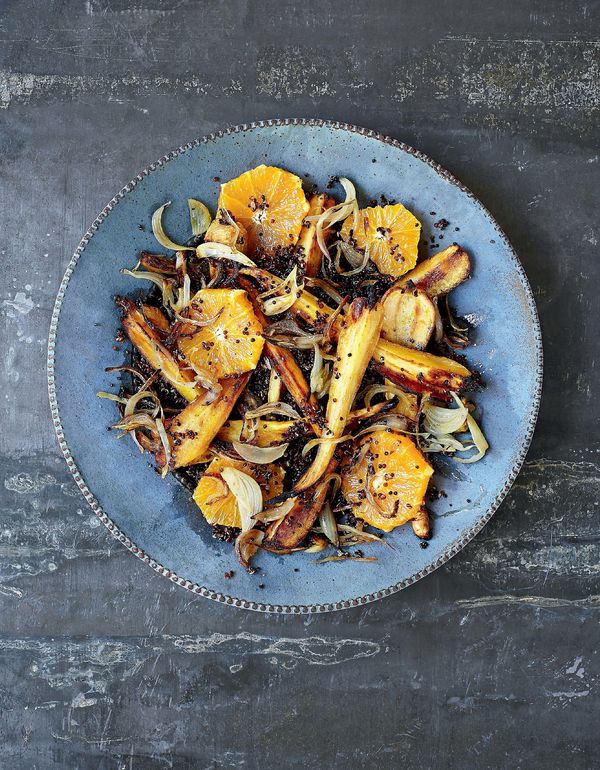
Honeyed Parsnip Quinoa by Rachel de Thample
Rachel de Thample can always be relied upon for interesting ways of using staple ingredients. And her parsnip salad is a case in point: rarely does an ordinary parsnip enjoy such lavish treatment as this orange, chilli and cardamom pairing – warming yet bracing, sweet yet savoury – it’s everything I want in a winter salad.
See you next month for the February edition.
Kathy’s cookbook, From the Veg Patch is out now.
From the book
Buy From
Find Kathy’s other columns here:
